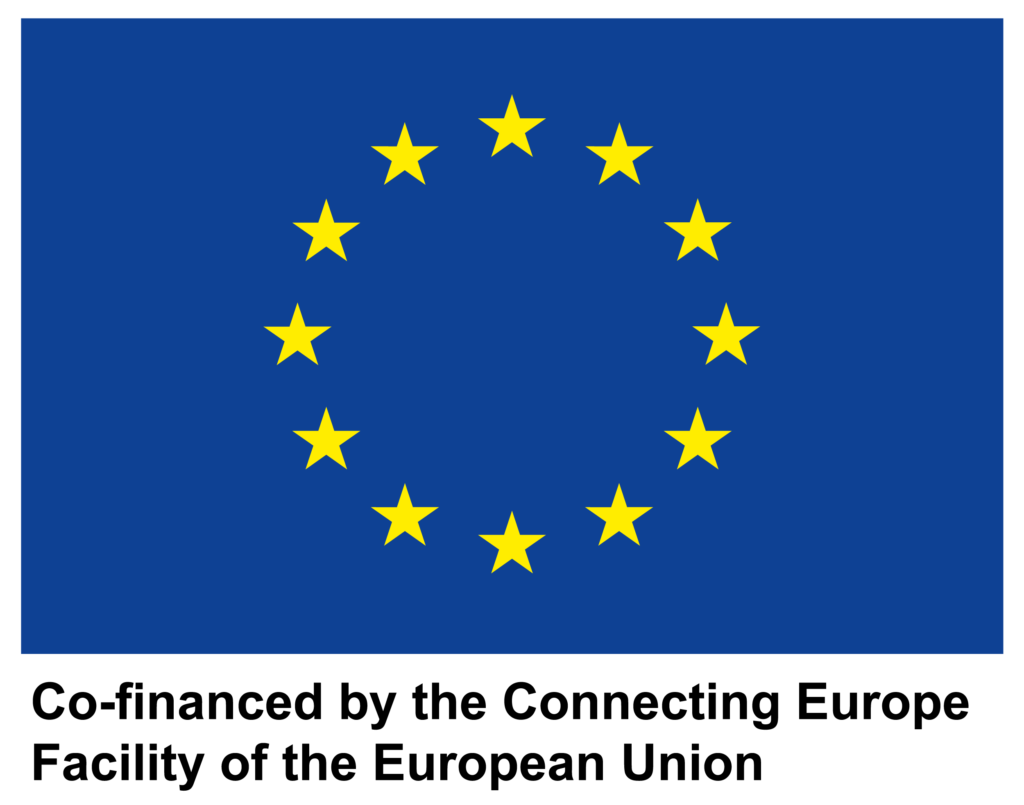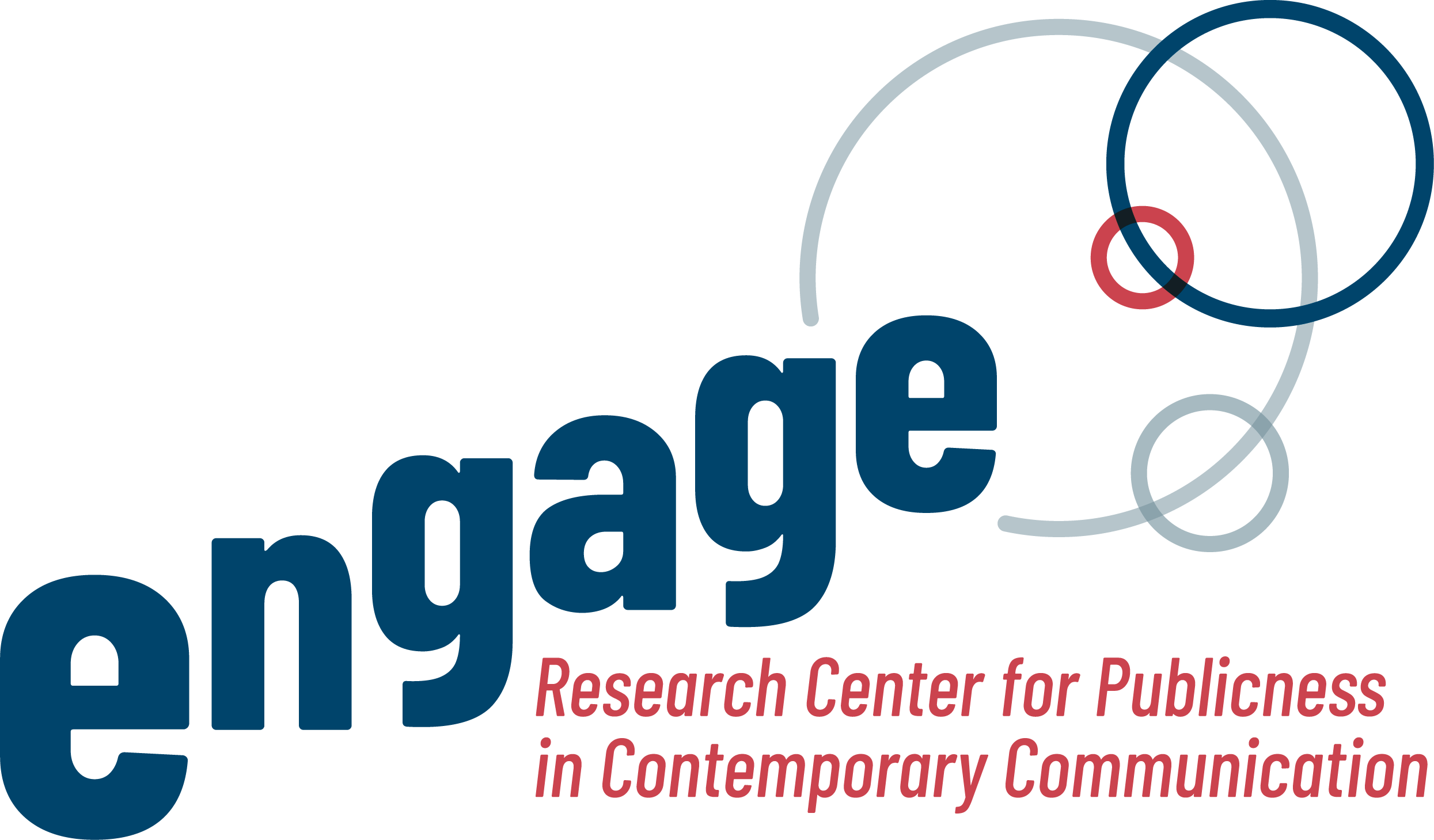Members of the Consortium
Agence France-Presse (France), Athens Technology Center (Greece), Conseil supérieur de l’éducation aux médias (CSEM, associate partner), Media Animation (subcontractor) Mediawijs (Belgium), RTL Luxembourg, EU DisinfoLab (Belgium), RTBF (subcontractor), Université Saint-Louis – Bruxelles (USL-B, Belgium), Vrije Universiteit Brussel (VUB, Belgium, coordination)
Engage promoters
Marie Dufrasne, Geoffroy Patriarche
Engage researcher
Website & social media
Wesite of EDMO BELUX: https://belux.edmo.eu/
Website of central EDMO: https://edmo.eu/
DisinfoCheck (access to research results, fact-checks and media literacy resources).
Time span of the project
October 1st, 2021 – March 31st, 2023
Keywords
Disinformation, Digital media, hub, Belgium, Luxembourg
Funding
EDMO BELUX is funded by the European Commission under the Connecting Europe Facility 2014-2020 programme
Description
The Belgian and Luxembourgish hub for research on digital media and disinformation (EDMO BELUX) brings together an unprecedented, experienced and extensive network of fact-checkers, media, disinformation analysts, media literacy organisations and academics to detect, analyse and expose emerging harmful disinformation campaigns. Through rapid alerts in the network, fact checks and investigative reporting reach first responders to disinformation (media, civil society, government) in order to minimize the impact of disinformation campaigns. In addition, through media literacy campaigns, EDMO BELUX raises awareness and builds resilience among citizens and media to combat disinformation. Finally, the hub embeds its disinformation monitoring, analysis and awareness into a multidisciplinary research framework on the impact of disinformation and platform responses on democratic processes.
The main responsibilities of EDMO BELUX include:
- EDMO BELUX will bring together an unprecedented and extensive network of experienced fact-checkers, media, disinformation analysts, media literacy organisations and academics to detect, analyse and expose emerging harmful disinformation campaigns.
- Through rapid alerts in the network, EDMO BELUX’s fact checks and investigative reporting will reach first responders to disinformation (media, civil society, government) in order to minimise the impact of disinformation campaigns.
- Through media literacy campaigns, EDMO BELUX will raise awareness among and empower citizens and media.
- Through multidisciplinary research, EDMO BELUX will monitor the impact of disinformation and platform responses on democratic processes.
In the first thirty months of its operation, the hub will publish 800 fact checks in five languages, conduct OSINT (open source intelligence) investigations on disinformation campaigns, develop and implement media literacy activities at community level in three languages and deliver annual cross-community audience studies on impact of disinformation campaigns, as well as annual assessments of effectiveness of platform responses to disinformation.
EDMO BELUX is one of eight projects to have received EU funding to set up national and multinational observatories to counter disinformation and work in close collaboration with the central EDMO. Of these eight projects, EDMO BENL will also provide services to the Dutch-speaking disinformation research community in Belgium. Hence, there will be a close EDMO BENL – EDMO BELUX collaboration.
EDMO BELUX is coordinated by the Vrije Universiteit Brussel.
As a consortium member in EDMO BELUX, Engage is responsible for developing the French-speaking branch of the hub, for coordinating various studies on the impact of disinformation (with CLT-UFA, EU DisinfoLab and VUB), and for conducting surveys on the reception of disinformation and its effects on democratic processes (with VUB).

Scientific publications
Wiard, Victor; Patriarche, Geoffroy; Jacobs, Thomas; Chapellier, Daphné. Deliverable 3.2.4. Folk theories of info-democratic disorders: an in-depth qualitative audience study in Belgium and Luxembourg. (2023) 105 pages. http://hdl.handle.net/2078.1/280176
An executive summary of this report is available in English, French and Luxembourgish on the EDMO BELUX website.
Lefevere, Jonas; Meyer, Trisha; Patriarche, Geoffroy; Schmit, Steve; Wiard, Victor. Deliverable 3.2.3. Exposure to and belief in disinformation: a comparative study of Belgium and Luxembourg. (2023) 56 pages. http://hdl.handle.net/2078.1/280174.
An executive summary of this report is available in English, French and Luxembourgish on the EDMO BELUX website
Wiard, Victor ; Patriarche, Geoffroy ; Dufrasne, Marie ; Rasquinet, Olivier. Folk theories of info-democratic disorders: preliminary results from an ongoing qualitative audience study in Belgium and Luxembourg. (2022) 57 + v pages. http://hdl.handle.net/2078.3/266130 .
An executive summary of this report is available in English, French and Luxembourgish on the EDMO BELUX website.
Wiard, Victor. News ecology and news ecosystems. In: Jon F Nussbaum ; Oxford University Press, Oxford Research Encyclopedia of Communication, Oxford University Press 2019. http://hdl.handle.net/2078.3/214395
Scientific communications
Wiard, Victor ; Patriarche, Geoffroy ; Jacobs, Thomas ; Chapellier, Daphné. Linking disinformation and democracy: results from a qualitative audience study. EDMO BELUX Lunch lecture (Brussels, 18/03/2024). http://hdl.handle.net/2078.3/285722
Wiard, Victor ; Patriarche, Geoffroy ; Chapellier, Daphné ; Jacobs, Thomas. “It’s A Very Small Country After All!” A Qualitative Perspective On The Reception Of Dis-/Misinformation In Belgium And Luxembourg. EDMO Scientific Conference 2024 (Amsterdam, du 26/02/2024 au 27/02/2024). http://hdl.handle.net/2078.3/285710
Wiard, Victor. Taking the audience seriously: info-democratic disorders and the reception of disinformation. MA program “Disinformation and Sociatal Resilience” aka WP 1, Task 1.6 (Strategize for Independence and Sustainability of BECID) (Tartu, 14/02/2024). http://hdl.handle.net/2078.3/285711
Wiard, Victor. Publics de la désinformation en Belgique et au Luxembourg : étude qualitative des représentations de la dimension transnationale des troubles info-démocratiques. Dimension transnationale de la production médiatique : identité des journalistes, enjeux de la désinformation (Roubaix (Lille), 30/01/2024). http://hdl.handle.net/2078.3/285719
Wiard, Victor ; Patriarche, Geoffroy. Info-democratic disorders and modes of citizenship: a cross-cultural audience study in Belgium and Luxembourg. Disrupted or disruptive audiences? From reception to participation in a post-truth era, Conference of the Audience and Reception Studies Section of ECREA (Porto, du 12/09/2023 au 14/09/2023). http://hdl.handle.net/2078.3/280491
Wiard, Victor. Les “théories profanes” des publics de la mé-/désinformation : résultats préliminaires d’une étude qualitative de réception en Belgique et au Luxembourg.Séminaire du CREM – Praximédia : Les rapports à l’information. Études des significations attribuées au fact-checking (Metz, 14/03/2023). http://hdl.handle.net/2078.3/274322
Wiard, Victor ; Patriarche, Geoffroy ; Dufrasne, Marie ; Rasquinet, Olivier. Folk theories of info-democratic disorders in Belgium and Luxembourg: preliminary results from an ongoing qualitative audience study. Insights on the impact of disinformation from multiple perspectives (Université Saint-Louis – Bruxelles, Bruxelles, 28 octobre 2022). http://hdl.handle.net/2078.3/266595
Wiard, Victor ; Patriarche, Geoffroy ; Dufrasne, Marie ; Rasquinet, Olivier. “I share ’cause I care“: social media users’ folk theories of the interplay between dis/misinformation and democracy. 9th European Communication Conference (ECREA) (Aarhus, du 19 au 22 octobre 2022). http://hdl.handle.net/2078.3/266132
Wiard, Victor ; Patriarche, Geoffroy ; Dufrasne, Marie ; Rasquinet, Olivier. Les théories profanes dans la recherche sur les publics de la mé-/désinformation : de la définition du concept à l’opérationnalisation méthodologique. Journée d’études – Appréhender les publics : perspectives théoriques et approches méthodologiques (Lannion, du 1er au 2 décembre 2022). http://hdl.handle.net/2078.3/266790
Societal valorization
Wiard, Victor; Patriarche, Geoffroy. Moderation of a workshop session on EU elections and (mis)information, as part of a workshop series on ‘Elections européennes du 9 juin 2004: les jeunes s’en mêlent’ aimed at the 5th and 6th year secundary school students of Institut Saint-Louis, Brussels, and organised by Denis Duez, Florence Delmotte, Daphné Chapellier and Thomas Jacobs, UCLouvain Saint-Louis Bruxelles, 26 March 2024.
Émeutes en France et réseaux sociaux. Interview de Victor Wiard pour La Première et rtbf.be, juillet 2023.
Patriarche, Geoffroy. “Fake news” et “théories du complot”: au-delà du trouble informationnel, des enjeux émotionnels et relationnels / “Fake news” en “complottheorieën”: bovenop de informatiestoornis, emotionele en relationele uitdagingen.Rencontres des communicant·es du Service Public Fédéral Santé publique, Sécurité de la Chaîne alimentaire et Environnement (Bruxelles, 21/04/2023). http://hdl.handle.net/2078.3/274309
Other outputs
Patriarche, Geoffroy. ‘La vérification des faits ne change pas nécessairement les choses’: l’enquête au prisme des théories profanes sur les troubles informationnels et démocratiques.Intervention (présentation et discussion) dans le cadre du cours “Théories de la culture et des médias”, Université de Lausanne (Lausanne, 05/12/2023). http://hdl.handle.net/2078.1/280818
Brites, M. J., Frau-Meigs, D., Kotilainen, S., McDougall, J., and Patriarche, G., 2022. Digital Media and Infor-mation Literacy (DMIL): the stakes for social and individual well-being. Contribution to the DIGEING roadmap ‘Toward an interdisciplinary research agenda on digital media and human well-being’ submitted to the European Commission to feed future EU project calls.
